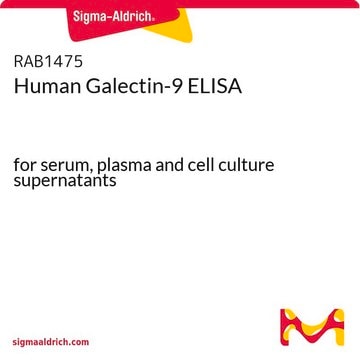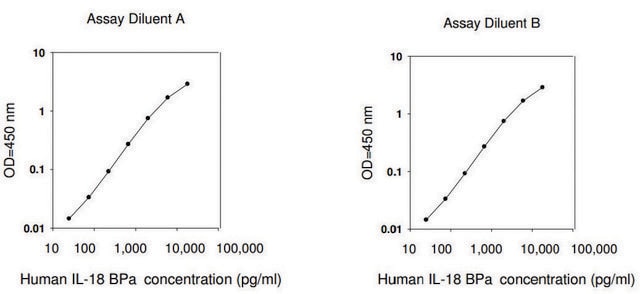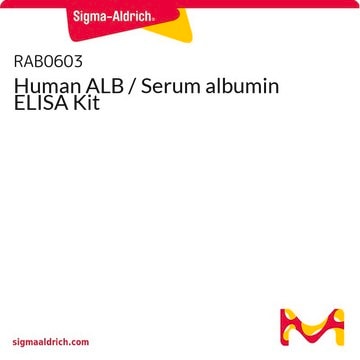추천 제품
종 반응성
human
기술
ELISA: suitable
입력
sample type cell culture supernatant(s)
sample type plasma
sample type serum
assay range
inter-assay cv: <12%
intra-assay cv: <10%
배송 상태
wet ice
저장 온도
−20°C
유전자 정보
human ... MSMB(4477)
일반 설명
The prostate secretory protein of 94 amino acids (PSP94), which is secreted by the prostate gland, is a small, cysteine-rich, and non-glycosylated protein. It is found abundantly in prostatic secretions and is a primary constituent of human semen. Lower expression of the PSP94 gene is observed in prostate cancer. PSP94 acts as a tumor suppressor and curbs metastasis. It also acts as an inhibitor of sperm motility and sperm acrosome reaction. The PSP94 gene is located on the human chromosome at 10q11.22.
애플리케이션
For research use only. Not for use in diagnostic procedures.
Please refer to the attached Protocolfor details.
Please refer to the attached Protocolfor details.
기타 정보
A sample Certificate of Analysis is available for this product. Please type the word sample in the text box provided for lot number.
신호어
Warning
유해 및 위험 성명서
예방조치 성명서
Hazard Classifications
Met. Corr. 1
Storage Class Code
8A - Combustible corrosive hazardous materials
Flash Point (°F)
Not applicable
Flash Point (°C)
Not applicable
시험 성적서(COA)
제품의 로트/배치 번호를 입력하여 시험 성적서(COA)을 검색하십시오. 로트 및 배치 번호는 제품 라벨에 있는 ‘로트’ 또는 ‘배치’라는 용어 뒤에서 찾을 수 있습니다.
Ashwani Kumar et al.
Journal of molecular biology, 397(4), 947-956 (2010-02-27)
Several recent genome-wide association studies have linked the human MSMB gene, encoding prostate secretory protein of 94 residues (PSP94), with prostate cancer susceptibility. PSP94 is one of the most abundant proteins from prostatic secretions and a primary constituent of human
Bhakti R Pathak et al.
Asian journal of andrology, 12(5), 677-689 (2010-08-03)
The prostate secretory protein of 94 amino acids (PSP94) has been shown to interact with cysteine-rich secretory protein 3 (CRISP-3) in human seminal plasma. Interestingly, PSP94 expression is reduced or lost in the majority of the prostate tumours, whereas CRISP-3
Zhaohui Du et al.
International journal of cancer, 146(7), 1819-1826 (2019-06-22)
Latinos represent <1% of samples analyzed to date in genome-wide association studies of cancer. The clinical value of genetic information in guiding personalized medicine in populations of non-European ancestry will require additional discovery and risk locus characterization efforts across populations.
자사의 과학자팀은 생명 과학, 재료 과학, 화학 합성, 크로마토그래피, 분석 및 기타 많은 영역을 포함한 모든 과학 분야에 경험이 있습니다..
고객지원팀으로 연락바랍니다.









